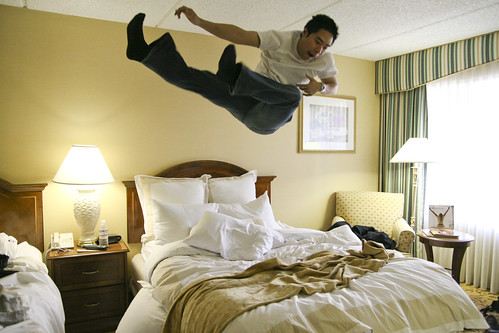 This Morning, BBC5live were running a science story about why teenagers were biologically idle... OK, they didn't phrase it like that they said: Melatonin levels changed at different times of the day for teenagers and that is why they struggle to get up in the morning.
This Morning, BBC5live were running a science story about why teenagers were biologically idle... OK, they didn't phrase it like that they said: Melatonin levels changed at different times of the day for teenagers and that is why they struggle to get up in the morning.
OK a word on this: All animals have a "circadian rhythm" this is a daily series of hormone level changes which occurs roughly on a 24hr cycle. First thing in the morning, just before you USUALLY get up, there is a spike in cortisol (hydocortisone) and various other changes which make getting up easier (allegedly!). This circadian rhythm is so robust that even if you chop certain nerve cells out of the brain all together and put them into a dish and keep the dish in darkness... they still change their pattern of activity on a more-or-less 24hr cycle for a while.
No wonder, when we travel transatlantic we feel dreadful jet-lag? We are getting the hormonal wake up and go to sleep signals still, but they are all at the wrong times. Over a few days, the "clock" gets re-set and we can return to normal (just in time to travel back transatlantically!). So what causes the body clock to re-adjust and eventually sort out the jet lag? Two things: (1) Your habits, if you keep going to bed the same time, the hormones pick-up this and go with it (2) Day light. Daylight hits particular cells of the eye and transmits a trigger signal to an area inside the brain called the hypothalamus and to the pineal gland. Each time those day light signal hit the hypothalamus, they bring the circadian rhythm slightly back into line until eventually they you are back in sync.
So, teenagers? Well it stands to reason that if you make a habit of getting up late, and spending longer in doors with the curtains pulled the body clock cannot adjust correctly. I hope to read the actual paper to which the BBC were referring and see if there really is anymore to it than that. I hope this is not a peice of "stating-the-bleedin' obvious" type of research!!


No comments:
Post a Comment
Be Nice!